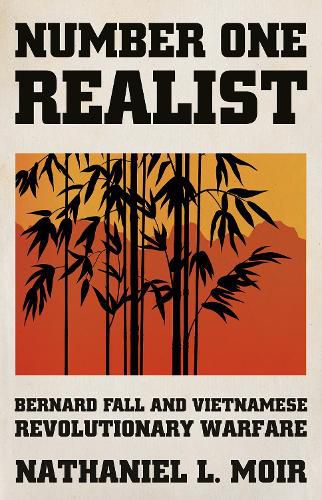Readings Newsletter
Become a Readings Member to make your shopping experience even easier.
Sign in or sign up for free!
You’re not far away from qualifying for FREE standard shipping within Australia
You’ve qualified for FREE standard shipping within Australia
The cart is loading…






In a 1965 letter to ‘Newsweek’, French writer and academic Bernard Fall (1926-67) staked a claim as the ‘Number One Realist’ on the Vietnam War. This is the first book to study the thought of this overlooked figure, one of the most important experts on counterinsurgency warfare in Indochina. Nathaniel L. Moir’s intellectual history analyses Fall’s formative experiences: his service in the French underground and army during the Second World War; his father’s execution by the Germans and his mother’s murder in Auschwitz; and his work as a research analyst at the Nuremberg Trials.
Moir demonstrates how these critical events shaped Fall’s trenchant analysis of Viet Minh-led revolutionary warfare during the French-Indochina War and the early Vietnam War. In the years before conventional American intervention in 1965, Fall argued that–far more than anything in the United States’ military arsenal–resolving conflict in Vietnam would require political strength, willpower, integrity and skill.
‘Number One Realist’ illuminates Fall’s study of political reconciliation in Indochina, while showing how his profound, humanitarian critique of war continues to echo in the endless conflicts of the present. It will challenge and change the way we think about the Vietnam War.
$9.00 standard shipping within Australia
FREE standard shipping within Australia for orders over $100.00
Express & International shipping calculated at checkout
Stock availability can be subject to change without notice. We recommend calling the shop or contacting our online team to check availability of low stock items. Please see our Shopping Online page for more details.
In a 1965 letter to ‘Newsweek’, French writer and academic Bernard Fall (1926-67) staked a claim as the ‘Number One Realist’ on the Vietnam War. This is the first book to study the thought of this overlooked figure, one of the most important experts on counterinsurgency warfare in Indochina. Nathaniel L. Moir’s intellectual history analyses Fall’s formative experiences: his service in the French underground and army during the Second World War; his father’s execution by the Germans and his mother’s murder in Auschwitz; and his work as a research analyst at the Nuremberg Trials.
Moir demonstrates how these critical events shaped Fall’s trenchant analysis of Viet Minh-led revolutionary warfare during the French-Indochina War and the early Vietnam War. In the years before conventional American intervention in 1965, Fall argued that–far more than anything in the United States’ military arsenal–resolving conflict in Vietnam would require political strength, willpower, integrity and skill.
‘Number One Realist’ illuminates Fall’s study of political reconciliation in Indochina, while showing how his profound, humanitarian critique of war continues to echo in the endless conflicts of the present. It will challenge and change the way we think about the Vietnam War.